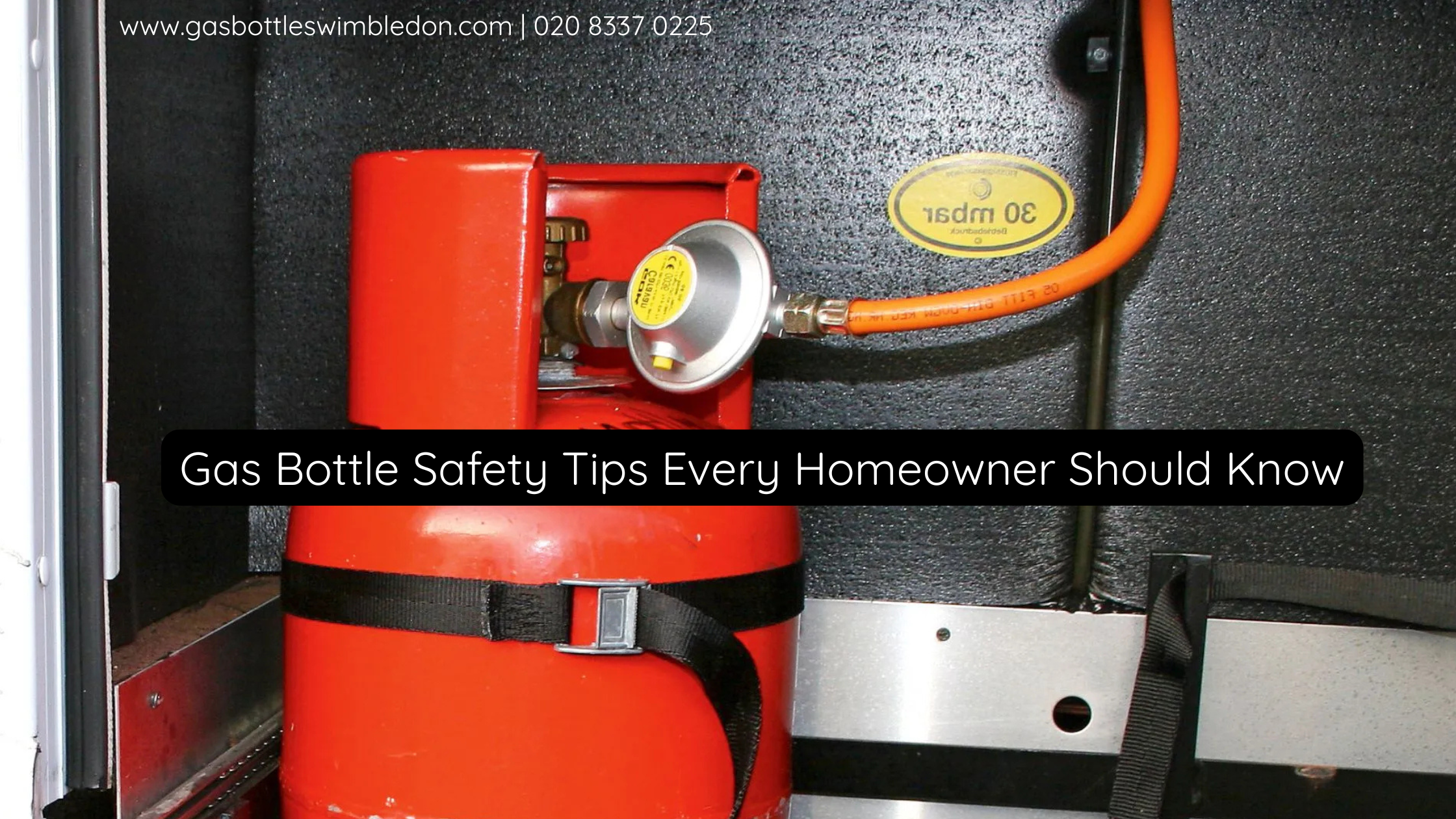Gas Bottle Safety Tips Every Homeowner Should Know
Gas bottles are an essential part of many households in the UK and beyond, powering everything from patio heaters and barbecues to indoor gas heaters and camping stoves. While they are safe when used correctly, gas bottles can pose risks if mishandled or poorly maintained. That’s why understanding gas bottle safety is crucial for every homeowner.
In this comprehensive guide, we’ll cover everything you need to know about gas bottle safety, including storage, handling, transportation, and maintenance. By the end, you’ll feel confident in keeping your family, home, and property safe.
Why Gas Bottle Safety Matters
Gas bottles contain liquefied petroleum gas (LPG), most commonly propane or butane. These gases are highly flammable and stored under pressure, which means any leaks or misuse can lead to accidents, including fire or explosions.
Every year, incidents caused by incorrect storage, damaged regulators, or improper usage highlight the importance of following safety protocols. Luckily, with a few simple steps, you can prevent these risks and enjoy the convenience of bottled gas without worry.
Gas Bottle Storage Safety Tips
Proper storage is the foundation of gas bottle safety. Here are some key tips:
1. Store Bottles Outdoors
Gas bottles should always be stored outside in a well-ventilated area. Never keep them in basements, garages, or sheds with poor airflow. Storing bottles indoors increases the risk of gas build-up if a leak occurs.
2. Keep Upright and Secure
Always store your gas bottle upright to prevent liquid leakage. Secure them against a wall, fence, or storage rack to prevent tipping over.
3. Avoid Heat Sources
Keep bottles away from direct sunlight, heaters, or any other sources of heat. Prolonged exposure to high temperatures increases internal pressure and can lead to leaks or explosions.
4. Don’t Store Near Flammable Items
Never store gas bottles near petrol, paint, or other flammable liquids. If a fire starts, the presence of gas bottles makes it much more dangerous.
Handling and Using Gas Bottles Safely
Once you’ve stored your gas bottles correctly, safe handling and usage are the next priorities.
1. Check for Leaks Regularly
Before using your gas bottle, apply soapy water around the valve and regulator. If bubbles form, there’s a leak. Never test for leaks with a naked flame.
2. Use the Right Regulator
Make sure the regulator matches your gas type (propane or butane) and bottle size. Using the wrong regulator increases the risk of leaks or poor performance.
3. Turn Off After Use
Always close the valve when the appliance is not in use, even if you plan to use it later the same day. This reduces the risk of leaks.
4. Ventilation is Key
If using gas bottles indoors with appliances such as heaters or cookers, ensure good ventilation. Poor airflow increases the risk of carbon monoxide poisoning.
5. Replace Damaged Hoses and Regulators
Inspect hoses for cracks, brittleness, or wear. Replace regulators every 5–10 years or sooner if damaged. Always use certified replacement parts.
Transporting Gas Bottles Safely
Sometimes, homeowners need to transport bottles for refills or replacements. Here’s how to do it safely:
Transport upright: Always keep bottles upright during transit.
Secure in vehicle: Prevent bottles from moving around while driving.
Ventilate: Keep windows open for airflow.
Never leave in hot cars: High temperatures increase pressure inside the bottle.
Limit quantity: Transport only as many bottles as necessary.
Common Gas Bottle Mistakes to Avoid
Even experienced users sometimes make mistakes. Here are some you should avoid:
Using damaged bottles – Never use a bottle that looks corroded, dented, or leaking.
DIY repairs – Never attempt to fix valves or regulators yourself. Always rely on professionals.
Improper disposal – Don’t throw empty bottles in household waste. Return them to suppliers for safe recycling.
Indoor storage – Avoid keeping bottles in kitchens, attics, or garages without ventilation.
Overfilling – Leave filling to trained professionals. Overfilled bottles can leak.
Gas Bottle Maintenance Checklist
To keep your gas bottles in top condition, follow this simple checklist:
✅ Inspect hoses and regulators every 3–6 months.
✅ Store bottles outdoors, upright, and secure.
✅ Test for leaks with soapy water before each use.
✅ Replace regulators every 5–10 years.
✅ Return damaged or expired bottles to suppliers.
Emergency Safety Tips
Even with precautions, emergencies can happen. Here’s what to do:
If you smell gas indoors: Open all windows and doors immediately. Do not switch on lights or use electrical appliances. Turn off the gas supply at the bottle.
If a bottle catches fire: Call emergency services immediately. If safe, use a dry powder extinguisher designed for gas fires.
If a leak is suspected outdoors: Move the bottle to an open, ventilated area if safe to do so.
FAQs
1. How do I know if my gas bottle is leaking?
Use a soapy water test. Apply the solution around the valve or regulator – bubbles indicate a leak. Never use fire or matches to test.
2. Can I store a gas bottle in my garage?
No, unless the garage is extremely well-ventilated. Storing bottles indoors increases the risk of gas build-up. Outdoor storage is always safer.
3. How long does a gas bottle last?
It depends on the size and usage. A 13kg propane bottle used for heating may last 4–6 weeks, while a smaller 5kg bottle for a barbecue may last only a few uses.
4. What should I do with an empty gas bottle?
Return it to your supplier or exchange it for a refill. Most suppliers run bottle return schemes.
5. Can gas bottles explode?
While extremely rare, bottles can rupture if exposed to fire or extreme heat. Following proper storage guidelines makes explosions highly unlikely.
6. Is it safe to use gas bottles indoors?
Yes, if used with the right appliances and with good ventilation. Always follow manufacturer instructions and never leave heaters or cookers unattended.
7. How often should I replace my gas regulator?
Most manufacturers recommend replacement every 5–10 years, or sooner if signs of wear appear.
Final Thoughts
Gas bottles are a safe, convenient, and reliable energy source when handled properly. By following the gas bottle safety tips above—covering storage, handling, transportation, and maintenance—you can keep your home and family protected.
Always remember: prevention is better than cure. Taking a few minutes to check your bottle, regulator, and storage area can prevent accidents and give you peace of mind.

